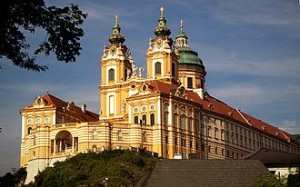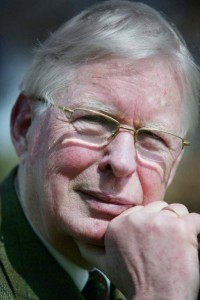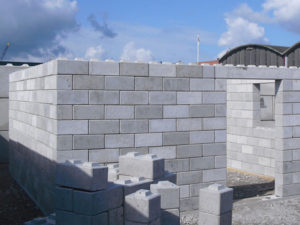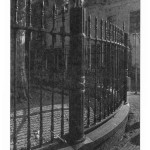Can Economics Value Human Survival? ~ An Interview With Graciela Chichilnisky
 Climate change threatens human survival and the existing economic arrangements and values are directly responsible for this sad state of affairs, argues Graciela Chichilnisky, author of the Kyoto Protocol Carbon Market and a world authority on climate change, in the interview that follows. Moreover, Professor Chichilnisky thinks that a new global economy based on “green capitalism” is not only possible but absolutely essential for the future of the planet. Graciela Chichilnisky is Professor of Economics and of Statistics at Columbia University, Visiting Professor of Economics at Stanford, and co-founder and CEO of Global Thermostat.
Climate change threatens human survival and the existing economic arrangements and values are directly responsible for this sad state of affairs, argues Graciela Chichilnisky, author of the Kyoto Protocol Carbon Market and a world authority on climate change, in the interview that follows. Moreover, Professor Chichilnisky thinks that a new global economy based on “green capitalism” is not only possible but absolutely essential for the future of the planet. Graciela Chichilnisky is Professor of Economics and of Statistics at Columbia University, Visiting Professor of Economics at Stanford, and co-founder and CEO of Global Thermostat.
Marcus Rolle: Professor Chichilnisky, can you discuss what might be some of the long-term effects of climate change on global economic activity?
Graciela Chichilnisky: The effects of climate change on global economic activity are profound and widespread and can be counted in the trillions of dollars, including losses of property from flooding, droughts and fires and other catastrophic events such as typhoons and tornadoes that have become more intense, more frequent and more volatile due to a warmer atmosphere and hydrosphere, which contain more energy. Think of New York City with three Sandy Superstorms per year. Firms and schools will be closed for most of the year, the police will be out of action, there will be no electricity, cars will be floating in the streets, etc. In sum, New York will not be a working city. The effects are incalculable. But the problem is larger than the dollar value of storms and floods and weather events because of the hundreds of millions or billions of lives that are either ruined or lost and the incalculable damage done to our political and social institutions and structures that make up the fabric of human civilization.
MR: There are several studies indicating that global warming impacts adversely on productivity and impacts negatively on global GNP per capita. Aren’t we throwing money around by not addressing global warming?
GC: Climate change will have indeed serious adverse effects on the economy and, in a recent OECD study, the value of losses of property in the world’s leading cities alone are in the trillions of dollars, including those in Miami Florida and Shanghai China. So, in this sense, we are definitely throwing money around. In reality, however, the whole concept of GDP and of economic value that we use today is suspect and many expect it to change sometime soon. I do.
MR: Developing countries are most likely to absorb much of the losses caused by climate change. If so, how will this development impact on migration flows to developed countries?
GC: I believe that among the first and worst effects of climate change that we will witness will be massive migration movements of tens or even up to hundreds of millions of people from poor nations badly affected by climate change into rich nations and, subsequently, the manifestation of extremist political processes in the latter nations as a result of these migration waves. Indeed, the process has already started, and, the war in Syria, which caused the massive migration of over 1million people into Europe, came in the aftermath of an unprecedented in terms of severity four-year drought that left millions desperate, with no jobs, food, or hope, forcing them in turn to flee for their lives. These unprecedented migration waves of refugees have already led, as I predicted in an earlier article, to political extremism both in Europe and the United States. Brexit is perhaps the most direct and explicit consequence of these developments, but there are others as well. We are witnessing the direct political consequences of radical extremism on the political stage in Europe and the United States right now. Climate change means that this pattern will continue and amplify and it can easily lead to the destruction of Western democratic values and of our most important governance institutions. This, in my view, is one of the most immediate, direct, dangerous and destructive effect of climate change as our entire social fabric and institutions, the very foundations of human societies as we know them, are at risk. All this can happen — and is in fact already happening very quickly –, and it can be, and probably will be, devastating to human societies. Humans will not disappear and become extinct without violence and conflicts and wars can be expected. Of course, most people have trouble imagining how this will develop as the physical survival of some human groups is still likely, but not when it comes to human civilization itself if the trend continues and prevails. Think of the follow-up effect of the massive asteroid that is believed to have hit Mexico about 60 million years ago and to have led to the disappearance of the dinosaurs, which were a globally dominant species at the time as we are now. Massive dust clouds stopped sun rays and the earths’ main source of energy. Millions perished. It is generally thought that the dinosaurs who could fly and overcame the lethal dust created by the impact of the asteroid are now still around and can be seen as birds, for example chickens. Will humans become the chickens of the future? Possibly. Read more
God wil het! Reizen in het spoor van de kruisvaarders
De historische importantie van de Kruistochten die tussen de 11e en de 15e eeuw plaats vonden in Europa en het Midden-Oosten wordt in het huidige tijdperk doorgaans door Westerse historici en politici onderschat.
Lejo Siepe en Robert Mulder volgden enkele jaren geleden het spoor van de eerste Kruistocht en ontdekten dat met name in de Arabische wereld de herinneringen aan de Kruistochten nog altijd levendig zijn. In de hoofden van veel moslims is deze historische gebeurtenis actueler dan ooit. De islamitische wereld voelt zich bedreigd door het Westen. Het Westen voelt zich bedreigd door de islamitische wereld. Een geschiedenis herhaalt zich. Heden ten dage worden in zowel de christelijke stromingen als in de islam de geloofsstellingen weer betrokken, gebaseerd op oude mythen, sagen en legendes. Hebben de Kruistochten in dit verband meer dan een symbolische betekenis?
In dit reisverslag langs de route van de eerste Kruistocht hebben Lejo Siepe en Robert Mulder geprobeerd antwoord te vinden op de vraag of er sprake is van een nieuw vijandsbeeld gebaseerd op oude vooroordelen. De auteurs spraken in Europa en in het Midden Oosten met vooraanstaande historici, schrijvers, filosofen en geestelijken (onder andere Amos Oz, Amin Maalouf, Sadik Al Azm, Benjamin Kedar, Halil Berktay) over de actuele invloed van de Kruistochten op onze moderne geschiedenis en de onverminderd voortdurende godsdienstige conflicten tussen moslims, joden en christenen.
Inhoudsopgave
Hoofdstuk Een – Reizen in het spoor der kruisvaarders – Inleiding
Hoofdstuk Twee – Duitsland: de vijanden van God
Hoofdstuk Drie – Hongarije: de koning der boeken
Hoofdstuk Vier – De Balkan: een eeuwig strijdtoneel
Hoofdstuk Vijf – Bulgarije
Hoofdstuk Zes – Constantinopel: in het kamp van de vijand
Hoofdstuk Zeven – Nicaea en Dorylaeum: Sterf dan honden!
Hoofdstuk Acht – Cappadocië: De vlakte des doods
Hoofdstuk Negen – Antiochië: het verraad van het harnasmasker
Hoofdstuk Tien – Antiochië: een teken van God
Hoofdstuk Elf – Syrie: twee grote leiders voor een geweldig volk
Hoofdstuk Twaalf – Libanon: het land van ruines
Hoofdstuk Dertien – Israel: het land van belofte
Hoofdstuk Veertien – Jeruzalem: God wil het!
David Satterthwaite & Cassidy Johnson ~ Ten Essentials For The New Urban Agenda In One Page
Ten concise points respond to the current draft of Habitat III’s New Urban Agenda which is lengthy, dense and gives too little attention to the key roles of local government and civil society.
Habitat III will seek global political commitment to making urban centres more sustainable, inclusive and resilient. But the latest draft of the New Urban Agenda – to be agreed at the summit – is long, impenetrable and gives little attention to urban governance. Frustrated by this unwieldy document, we have developed an alternative version of the New Urban Agenda – in one page.
Borrowing the format of the United Nations Office for Disaster Risk Reduction’s Ten Essentials for Making Cities Resilient (PDF) these short and practical points provide national governments with clear direction for a workable outcome from Habitat III.
The text does not include many important goals. It seeks instead to push attention away from long lists that repeat commitments already made to the means by which these can be met.
Ahead of the last negotiation meeting before the summit we share these guidelines and are keen to hear comments.
Read more: http://www.iied.org/ten-essentials-for-new-urban-agenda-one-page
Henk A. Becker ~ De levensloop van een workaholic ~ Autobiografie
6 augustus 2018 – In alle rust is in zijn eigen studeerkamer overleden Prof.dr. Henk A. Becker (1933 – 2018)
Ten Geleide – Maart 2016
Er zijn vele vormen voor het weergeven van een levensloop. Voor deze biografie heb ik als rode draad het verloop van mijn leven vanaf de geboorte en het begin van mijn werkleven tot het laatste stadium van mijn loopbaan gekozen. Het samenstellen van deze biografie heeft plaatsgevonden als een variant op ‘Sternstunden der Menschheit’ van Stephan Zweig. Telkens komt aan de orde welke effecten een ‘major event’ in mijn leven heeft gehad. Verder is ervan uitgegaan dat de privacy van familieleden, vrienden en kennissen gewaarborgd moet worden. In verband hiermee is telkens wel een naam genoemd maar is verdere informatie over de invloeden vermeden.
2.Eerste levensjaren
Geboren ben ik op 30 mei 1933 in Greifswald aan de Oostzee. Mijn vader had de Duitse nationaliteit. Hij was doctor in de theoretische natuurkunde. Aan de Universiteit van Greifswald was hij verbonden als wetenschappelijk medewerker. Mijn moeder had van oorsprong de Nederlandse nationaliteit. Tot aan haar huwelijk had zij als secretaresse voor mijn Hollandse grootvader op zijn advocatenkantoor gewerkt. Een kleine twee jaar na mijn geboorte kwam mijn jongere broer ter wereld.
Toen ik vier jaar oud was verhuisde ons gezin naar Berlijn. Mijn vader ging werken voor Siemens. Wij gingen wonen in een appartement in Berlin-Siemensstad, een buitenwijk van de stad. Tegenover het appartementengebouw stond een lagere school. Nadat ik de leerplichtige leeftijd had bereikt ben ik daar naar school gegaan.
Mijn vader was geen militair. Hij noemde in huiselijke kring Hitler ‘der Wahnsinskanditat’. De leden van ons gezin kregen van mijn vader te horen: ‘één verkeerd woord en wij zitten me z’n allen in een koncentratiekamp’. Deze dreiging heeft vooral mijn verblijf op de lagere school een krampachtig karakter gegeven.
Het was de tijd van de bombardementen op Berlijn. Meerdere keren per week ging ’s nachts de sirene en daalden wij af naar de schuilkelder onder het flatgebouw. Overdag moesten de docenten en leerlingen van de lagere school vaak naar de schuilkelder vertrekken.
3.Evacuaties en migratie
Om de bombardementen op Berlijn te ontvluchten werden groepen bewoners regelmatig geëvacueerd naar andere delen van Duitsland. De eerste evacuatie van mijn moeder, mijzelf en mijn broer bracht ons naar Beieren. In het wijkje Unterau van Schledorf am Kochelsee woonden wij bij een boerengezin. Vriendelijke, gastvrije mensen. In Schledorf zat ik op de lagere school. Mijn Beierse medeleerlingen hadden de pest aan Duitsers uit het noorden van het land. Vaak kreeg ik te horen: ‘Du Saubub du dreckiger’. Als ‘Saupreusz’ was ik een gehaat individu. Gelukkig bleef het bij uitschelden en kwamen er geen vechtpartijen.De tweede evacuatie vond plaats naar Bernstein, een dorp in de Neumark. Het dorp ligt ten Oosten van Berlijn, aan de andere kant van de Oder, in het huidige Polen. In de naburige stad Arnswalde heb ik nog enkele maanden op een gymnasium gezeten. Totdat het Russische leger oprukte. Mijn moeder besloot om niet samen met ons te vluchten omdat een schoonzuster van haar in een ziekenhuis in een naburige plaats lag. Zij mocht niet alleen worden achtergelaten. Mijn moeder nam de zorg voor de dochter van haar schoonzuster op zich. Read more
Building Homes From Plastic Bricks! Waste Product Homes Are The Future.
What if things we throw away could be put right in a block maker, and turned into bricks? That’s beginning to happen in multiple ways! From plastic bricks made of recycle waste to machines that crush boulders and rocks into liquid cement, and make bricks, there are great things on the horizon!
These blocks can be made in the same size as standard concrete blocks, though don’t have the same weight-bearing capabilities. The blocks do have good acoustic and thermal insulation properties, which ByFusion says makes them ideal for use in road projects or fill-in building frames.
Read more: http://www.offgridquest.com/construction-methods/Plastic-b





